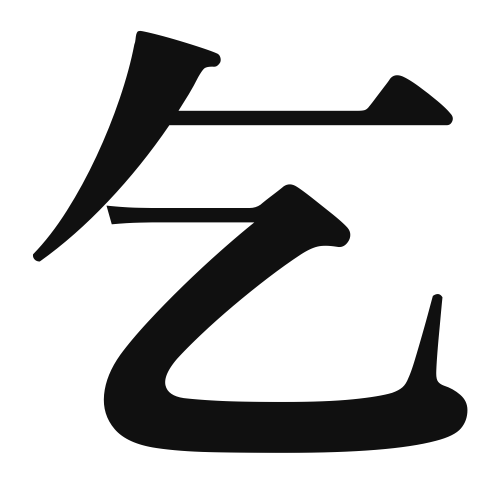1. Overview of Meaning
The kanji 乞 (kitsu) means “to beg” or “to request.” It conveys the idea of asking for something, often in a humble or needy manner.
2. Formation and Radical
Formation of the Kanji: The kanji 乞 is classified as a pictogram, representing a person with outstretched hands, symbolizing the act of begging or requesting.
Radical: The radical for 乞 is 乞 itself, which is used in other kanji related to asking or requesting.
3. Examples of Usage
Common Words and Phrases: Some common words that include 乞 are:
- 乞食 (kijiki) – begging or alms-seeking
- 乞願 (kigan) – to request or plead
Example Sentences in Daily Conversation:
- 彼は道で乞食をしている人を見ました。
(He saw a person begging on the street.) - 彼女は乞願して、助けを求めました。
(She pleaded for help.)
4. Synonyms and Antonyms
Similar Kanji: A similar kanji is 求 (kyuu), which means “to seek” or “to request,” but it is often used in a more formal context compared to 乞.
Antonyms: An antonym is 与 (yo), which means “to give,” representing the opposite action of asking or begging.
5. Cultural and Historical Background
Relation to Japanese Culture: In Japanese culture, the act of begging is often viewed with compassion, and there are various social programs to assist those in need.
Proverbs and Idioms: One common saying is 乞うて得る (koute eru), which means “to gain by asking,” emphasizing the importance of requesting help when needed.
